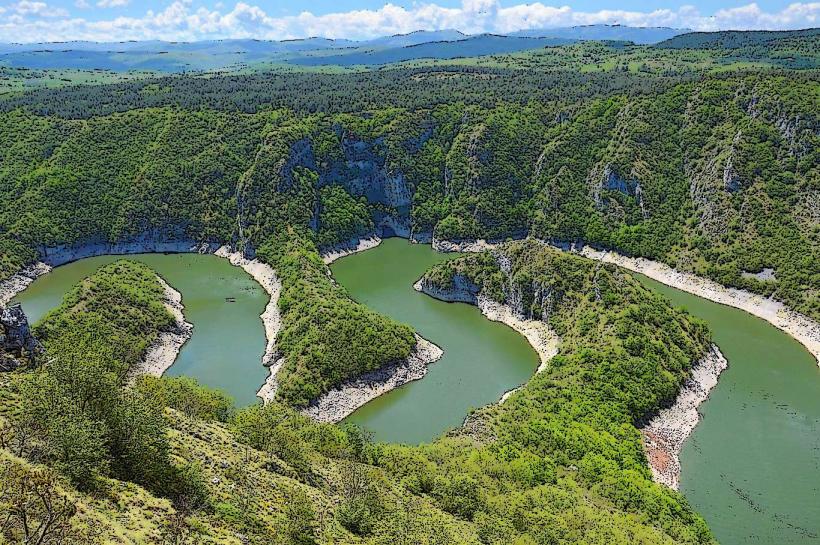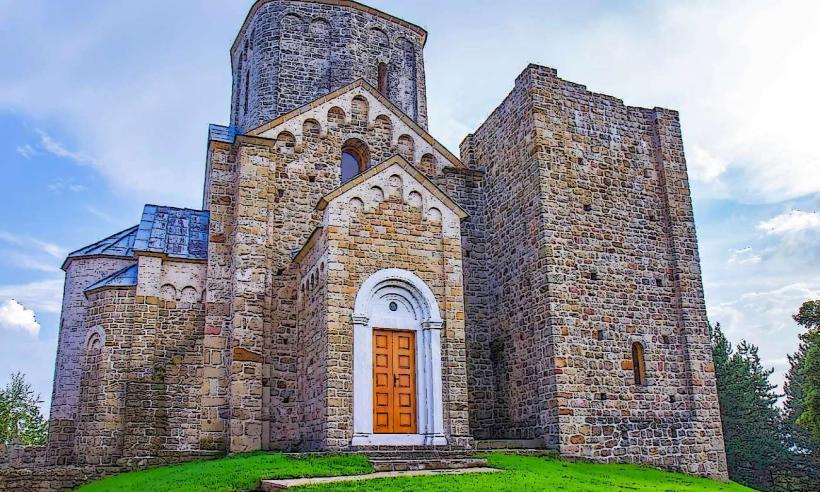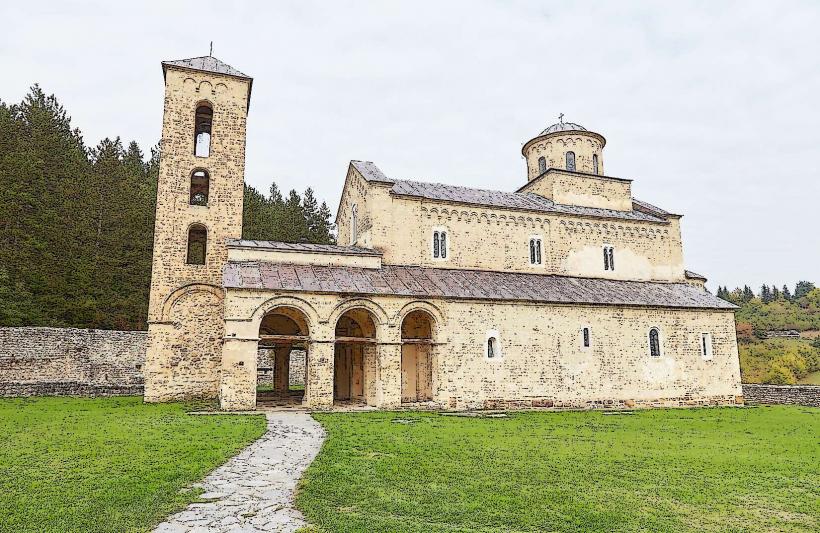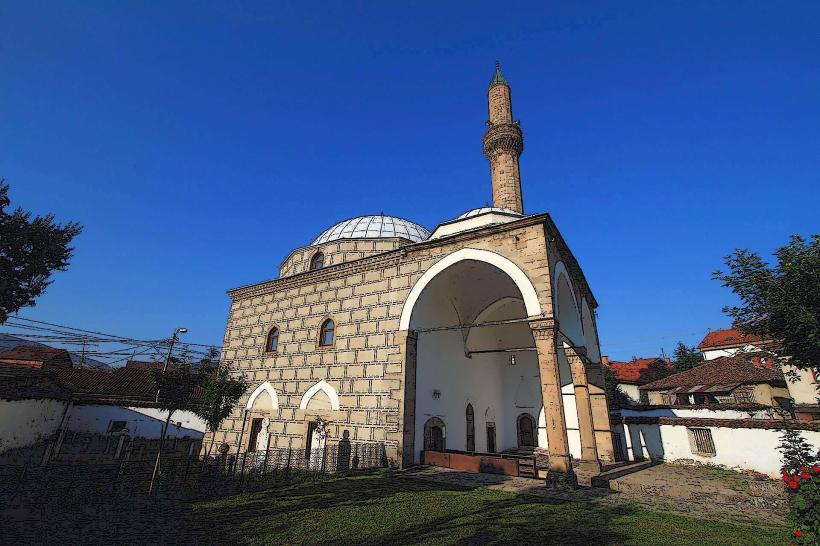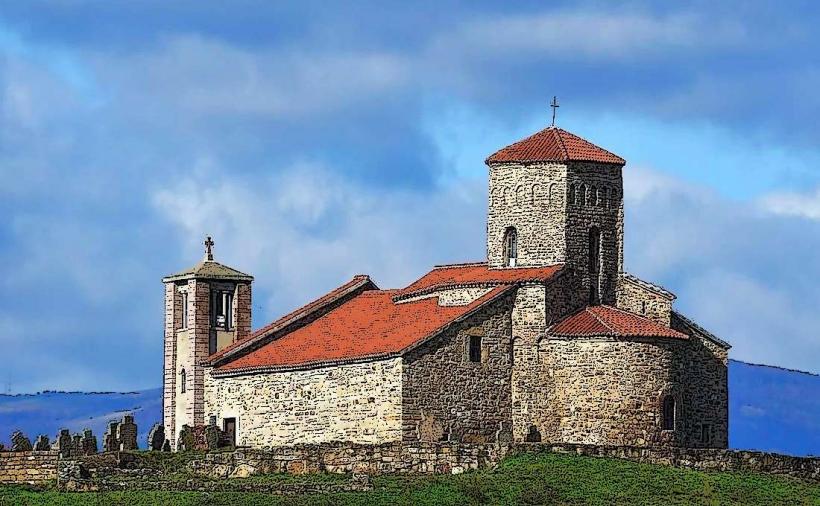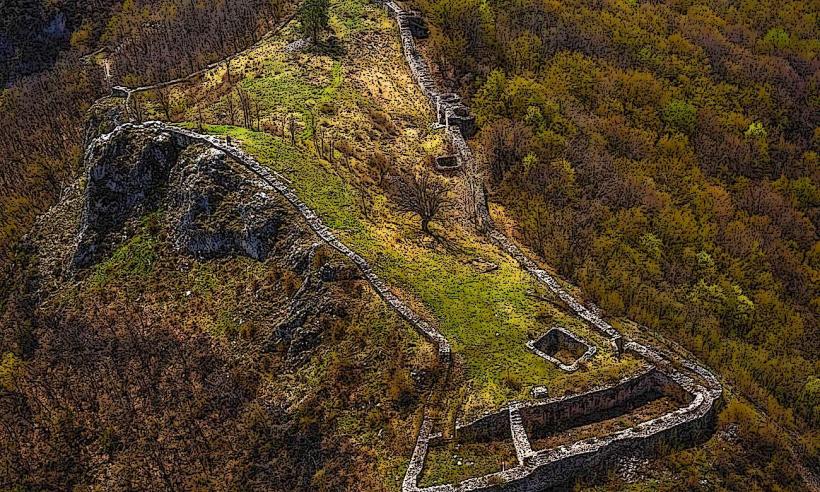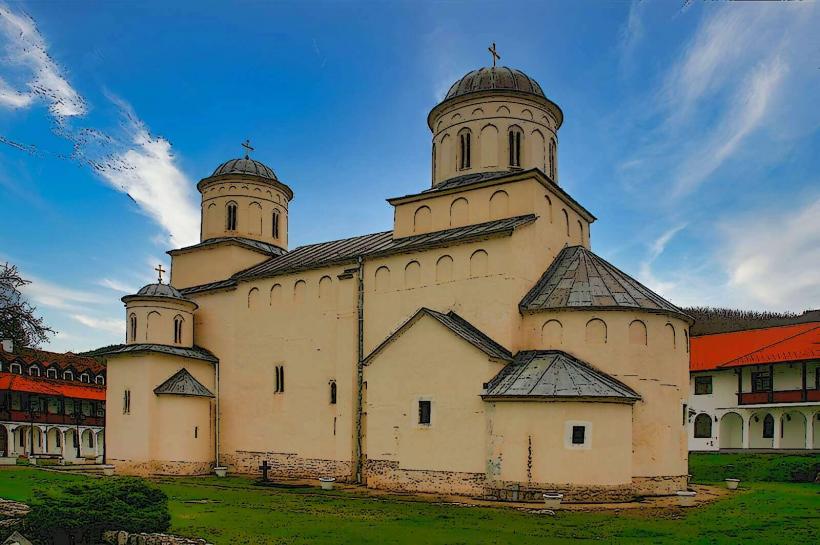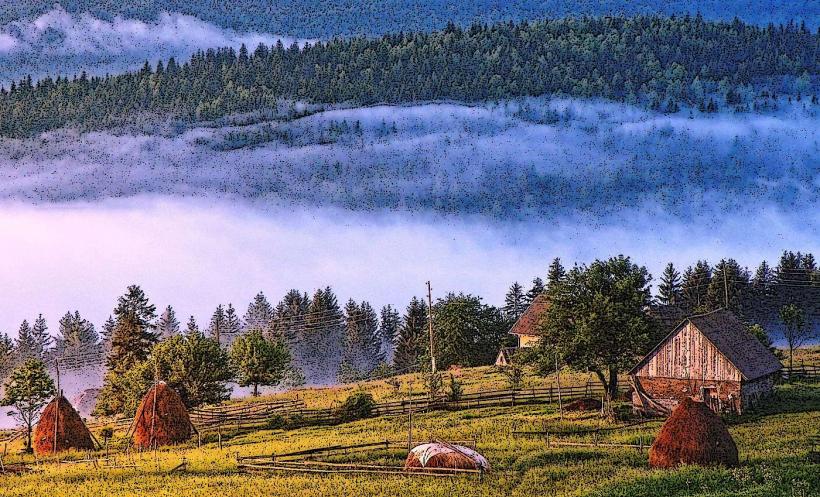Information
City: Novi PazarCountry: Serbia
Continent: Europe
Novi Pazar is a historic city located in the southwest of Serbia, in the Raška District. It lies at the confluence of the Raška and Moravica rivers and serves as an important center for the Sandžak region, which is culturally diverse and historically significant. The city is known for its rich Ottoman heritage, vibrant cultural diversity, and its strategic location at the crossroads of Serbia, Montenegro, and Bosnia and Herzegovina.
Geography and Climate:
- Location: Novi Pazar is situated in the Raška Valley and surrounded by mountains and hills, making it a geographically significant city in Serbia’s southwestern region. It lies about 300 kilometers south of Belgrade and is close to the borders with Montenegro and Bosnia and Herzegovina.
- Topography: The city is located in a river valley, which has made it an important settlement area throughout history. The surrounding mountain ranges offer scenic views and natural resources, adding to the region's appeal.
- Climate: Novi Pazar experiences a continental climate with cold winters and warm summers. Winters can be snowy and cold, while summer temperatures often rise above 30°C. Due to its location in a valley, it can also experience temperature variations, particularly in the mountainous areas surrounding the city.
Population and Demographics:
- Population: Novi Pazar has a population of approximately 100,000 people, making it one of the more populous cities in southwestern Serbia.
- Ethnicity: The city is known for its ethnic diversity, with the majority being Bosniaks (ethnic Muslims), along with Serbs and smaller communities of Albanians and Montenegrins.
- Languages: The official language is Serbian, but Bosnian is also widely spoken due to the significant Bosniak population.
- Religion: The city is predominantly Muslim, with a significant population of Eastern Orthodox Christians. The religious diversity is a reflection of the city’s complex historical and cultural identity.
Economy:
Industry:
- Novi Pazar has a diverse industrial base, including textile manufacturing, food production, and metalworking. The city has several factories producing clothing, textiles, and footwear, which are important exports for the region.
- Construction materials, machinery, and electronics are also part of the industrial sector. Over the years, the city has seen growth in small and medium-sized enterprises that contribute to its economy.
Agriculture:
- The fertile land around Novi Pazar is well-suited for agriculture, with significant production of fruits, vegetables, and cereals. The region is known for its production of apples, plums, and berries.
- The surrounding hilly terrain is ideal for livestock farming, particularly cattle and sheep. Dairy production is an important part of the local agricultural economy.
Commerce and Trade:
- Novi Pazar has a commercial hub role for the region, serving as a market center for surrounding towns and villages.
- The city's proximity to the borders with Montenegro and Bosnia makes it a strategic location for trade and logistics. It serves as a connection point for both local and regional trade in the Sandžak region.
- The city's open-air markets and shopping centers cater to a variety of commercial activities, from textiles to local agricultural products.
Tourism:
- Novi Pazar has tourist potential, with visitors drawn to its Ottoman-era architecture, natural beauty, and cultural diversity. The city’s rich Islamic heritage, including mosques and traditional handicrafts, also attracts tourists.
- Nearby mountain ranges and natural reserves provide opportunities for eco-tourism, hiking, and outdoor activities.
Culture and Lifestyle:
Cultural Heritage:
- Novi Pazar has a rich Ottoman heritage, and this is reflected in the city’s architecture, traditions, and cultural practices. The Ottoman influence is visible in the city’s mosques, bazaars, and food culture.
- The city also has a deep connection to the Serbian Orthodox traditions, with Serb Orthodox communities living alongside the Bosniak Muslim population, reflecting a diverse and multi-layered cultural heritage.
- The city celebrates Islamic holidays like Ramadan and Eid al-Fitr with special significance, alongside Serbian Orthodox Christian holidays such as Christmas and Easter.
Cuisine:
- The cuisine in Novi Pazar is a blend of Turkish, Bosnian, and Serbian culinary traditions. Common dishes include ćevapi (grilled minced meat), burek (pastry filled with meat or cheese), and sarma (cabbage rolls stuffed with meat).
- Baklava, tufahija (a type of stuffed apple), and tulumba (fried dough soaked in syrup) are popular desserts. The region is also known for coffee culture, particularly Turkish coffee.
- Spices like paprika and cumin are commonly used, reflecting the Ottoman influence on local dishes.
Arts and Festivals:
- Novi Pazar is home to a number of cultural institutions, including theaters, galleries, and museums, which showcase both local and regional art, history, and tradition.
- The Novi Pazar Cultural Festival is a popular annual event celebrating the city’s cultural diversity through music, dance, and theater performances.
- The city also hosts several Islamic cultural events such as Quran recitations and traditional music concerts. Additionally, religious celebrations and local crafts fairs are significant community events.
Nightlife:
- Novi Pazar offers a vibrant nightlife scene, particularly around its central areas, with a variety of cafes, restaurants, and bars.
- The city’s nightlife is often influenced by Turkish and Bosnian traditions, with cafes serving Turkish coffee and offering hookah. The city is known for its lively café culture, where people gather to socialize and relax in the evening.
- While not as bustling as larger cities in Serbia, Novi Pazar offers a relaxed and friendly atmosphere for locals and visitors to enjoy.
Education and Innovation:
- University of Novi Pazar: The city is home to the University of Novi Pazar, which offers programs in social sciences, engineering, tourism, education, and economics. The university is a key institution for higher education in the region and plays a significant role in the local economy and culture.
- Technical Institutes: Novi Pazar has several vocational and technical schools, offering training in fields like engineering, computer science, and textile design. These schools help foster a skilled workforce for local industries.
Transportation:
Public Transport:
- Novi Pazar is well-served by a public bus network, which connects the city to other towns in the region. Taxis are also readily available for local travel.
- The city’s transportation system is continuously improving, with ongoing projects to expand and modernize roads and public services.
Rail:
- Novi Pazar is connected to Belgrade and other major Serbian cities by rail, with regular train services running through the city. The railway station is a key point for both passenger and freight transport in the region.
Roads:
- The city is located along important national highways that connect it to Belgrade, Podgorica, and Sarajevo, making it a key point of access for travelers and goods moving through the region.
- Major roads, including the E763, provide direct access to neighboring countries like Montenegro and Bosnia and Herzegovina.
Air:
- The nearest airport to Novi Pazar is Morava Airport in Kraljevo, located around 90 kilometers away.
- Podgorica Airport in Montenegro is approximately 140 kilometers away, providing international flight options.
Urban Development and Challenges:
Urban Growth:
- Novi Pazar has seen significant urbanization in recent years, with an expansion of residential neighborhoods, shopping centers, and business parks.
- Efforts are being made to modernize infrastructure, improve public transportation, and enhance green spaces to accommodate the growing population and provide better living conditions.
Challenges:
- As the city develops, challenges related to urbanization, such as traffic congestion, pollution, and unemployment, continue to require attention.
- Social challenges related to ethnic and religious tensions occasionally arise, requiring ongoing efforts toward intercultural dialogue and community integration.
In conclusion, Novi Pazar is a culturally rich and historically significant city with a growing economy, vibrant community, and a key role in connecting Serbia with the broader Balkans. The city is continuously evolving, blending Ottoman heritage with modern development, and maintaining its unique position in the region.

